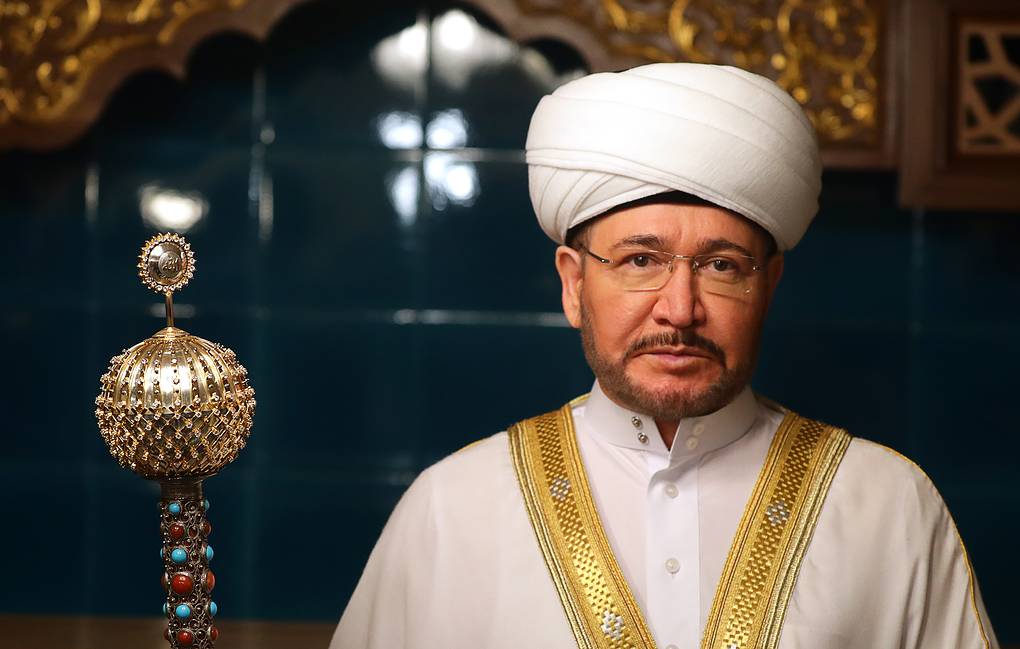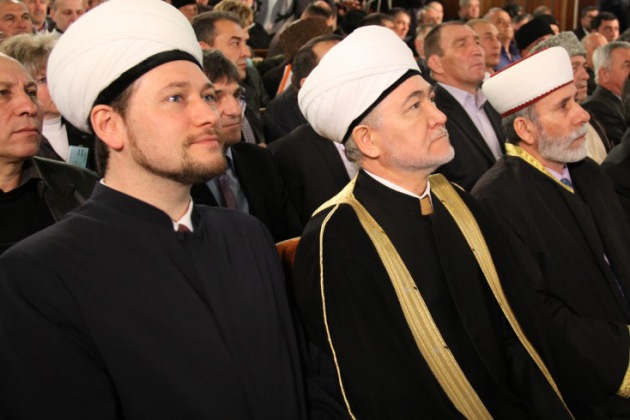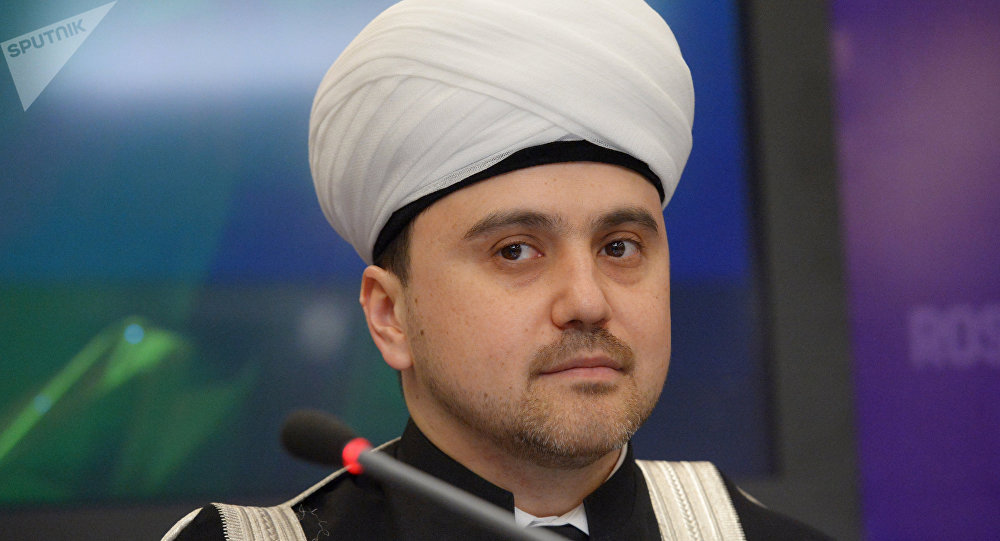Who is going to replace mufti Rawil Gaynutdin?
- Spiritual Administration of the Muslims of the Russian Federation
- 20.Jul ‘20
- 4.33
- 1051
- 0
The head of the Russian Council of Muftis (RCM) and the Central Muslim Spiritual Board (CMSB) of Russia, mufti Rawil Gaynutdin, is going to celebrate his 61th birthday next month.

Stepping into the age of retirement, every leader that spent many years in office has to think about potential successors. The candidate must be someone trustworthy and personally loyal; ideally, someone indebted to you for their career; someone distinguished, so that they would be considered worthy. Jumping ahead, we need to point out that despite his distinguished years, Rawil Gaynutdin should not be written off just yet. The Supreme Mufti Talgat Tajuddin – Gaynutdin used to serve as his secretary in mid-1980s and started his career and the Mufti’s guidance – is still very much alive and active at his ripe age of 71, and Gaynutdin is eleven years his junior. Yet, it makes a lot of sense to ponder who could replace him and become “the spiritual leader of Russian muslims,” as he is presented by web sources sympathetic of the CMSB. All the more so, since all potential candidates are men of high profile and great charisma.
When considering the question of who could be the successor, one should keep in mind that Gaynutdin presides over two centralized Muslim organizations: the Russian Council of Muslims, founded in 1996, and the Muslim Spiritual Board of Russia that was created on the basis of he Spiritual Administration of Muslims of the European Part of Russia.
As far as the CMSB is concerned, Rawil Gaynutdin has two first deputy: 68-year-old deputy chairman of the Council of muftis Damir Gizzatulin, and most ambitious Damir Mukhetdinov, a 42-year-old rector of the Moscow Islamic Institute and muhtasib of St. Petersburg. The latter does everything in his power to be viewed by everyone, including Gaynutdin, as the second most important person in CMSB.

Mukhetdinov started his clerical career in Nizhny Novgorod, where he went from being an imam in the cathedral mosque of the city to the deputy head of the Regional Spiritual Board of the Nizhny Novgorod region. In the time being, Mukhetdinov managed to launch several projects of limited success that were, however, handsomely funded. Thus, in 2004 Mukhetdinov founded the Nizhny Novgorod Islamic Institute named after Kh. Faikhzanov. No student graduated from the institution, yet Mukhetdinov managed to procure considerable monetary support for developing Islamic education from the government.
In 2010, Mukhedtinov moves to Moscow to be closer to Rawil Gaynutdin, and here is where his breakneck race to the top began. First, he serves as a RCM special representative for the CIS region; then leads the Spiritual Administration of Muslims of the European Part of Russia and becomes the first deputy for Gaynutdin.

It is at that time that Mukhetdinov suggested to rename the organization into CMSB of Russia: then they could bring all the muftiats into the new organization and create a more unitary structure. In 2015, Mukhetdinov becomes the muhtasib of St. Petersburg and the Leningrad region. He had three communities under his guidance, while none of the three had its own mosque. Mukhetdinov’s career reached its peak in 2017 when he became the rector of the Moscow Islamic Institute in 2017. Yet, three years in, the institution loses its accreditation and a license to perform educational activities. Even before that, Mukhetdinov’s academic career crashes and burns when he fails to defend his dissertation on theology: there, he wrote himself into a corner and ended up saying that ISIS and Taliban (these terrorist organizations banned in the Russian Federation), represent “the shariat tradition followed to its logical end.”
Gaynutdin’s deputy in the RCP is Rushan Abbyasov, a 38-year-old Moscow citizen who, unlike Damir Mukhetdinov, does not have a trail of scandal and failure behind him.

After he spent some years in the late 1990s as a madrasah teacher at the Moscow cathedral mosque, he in the early 2000s became an imam in the Noginsk district of the Moscow region, and then went on to be a mufti of the Moscow region. He has been leading RCP since 2011, while staying Gaynutdin’s deputy. In addition to that, he took the role as a deputy head of CMSB in 2014, where he deals with international affairs. Gaynutdin put him in charge of curating the Bulgaria Islamic Academy in Tatarstan on behalf of RCP and CMSB and to keep Mukhetdinov in check. Unlike the latter, Abbyasov is in no rush to nip on Gaynutdin’s heels: he lacks Mukhetdinov’s reckless ambition, and this may significantly increase his chances to become the successor. Mukhetdinov keeps ruining the projects he is entrusted with, be it creation of the Council of muftis of the CIS led by Gaynutdin, or the Moscow Islamic Institute that lost its teaching license under his guidance. Meanwhile, Abbyasov consistently works to boost his boss’s reputation, say, in Tatarstan, where the Bulgarian Islamic Academy gradually consolidates its position as “the russian Al-Azhar.

The question of the successor remains open for now. Gaynutdin, an experienced leader, is in no rush to assign this role to either of his deputies to not present himself as a lame duck. Yet, once an official reaches their sixties, it is time to put some thought into who would come after them.





Comments (0)